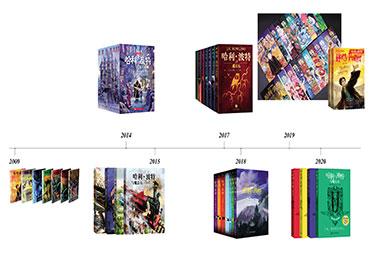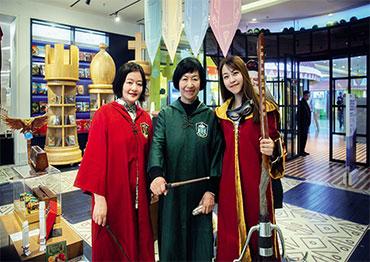2020 marked the 20th anniversary of Harry Potter’s arrival in China, and more than 30 million copies of the series have been sold in the country. Harry and his friends accompanied a young generation of Chinese. While these earliest fans may have long since grown up, many remain blissfully bewitched by the world of Harry Potter.
But 20 years ago, bringing a British children’s book about magic to China was a long journey full of challenges and doubts.
In the winter of 1999, Wang Ruiqin was a bit stressed. The new children’s literature department was founded by Nie Zhenning, president of People’s Literature, at a time when the genre was largely overlooked by literary circles and the public.
Starting the children’s literature desk was a reaction to the boom in commercial publishing in the late 1990s. Wang was looking for a project to start off her new job with a bang.
The publishing house had a large reading room where Wang spent a lot of time flipping through English and French magazines in search of ideas. In late 1999, she noticed a female writer who was in almost all the foreign magazines. Harry Potter and the Prisoner of Azkaban, the third novel in the series, had just been released. Staring at a photo of the proud author holding her latest book beside a train at King’s Cross, London, Wang could not resist asking: “Who on earth is J.K. Rowling?”
At the time, China’s internet was still in its infancy. Wang and the other editors scoured for information about Rowling and her books on the office’s only computer. After careful research, Wang was convinced that the Harry Potter series was exactly the project she was looking for.
But tracking down Rowling was another problem. The internet was so underdeveloped that Wang could not find the author’s contact information no matter how hard she tried.
“There was nothing but this resolute idea in my mind – I must find her no matter what,” Wang told NewsChina. “I had faith in myself that I would get the publishing rights.”
Wang got the contact for Rowling’s literary agent, Christopher Little, through a reporter who had returned from the UK. “It was like a welcome rain after a long drought. I hugged the reporter tightly and couldn’t help yelling, ‘You’re a lifesaver!’” Wang said.
In the early 2000s, before China joined the WTO, Chinese publishers – no matter how influential they were at home – were new to foreign publishing agents. Besides People’s Literature, many other major publishers in China, such as Yilin Press, Guangming Daily Press and Jiangsu Juvenile & Children Publishing House, competed for the rights to the Harry Potter series.
Looking to impress Little, Wang faxed him dozens of documents in which she expounded on the unparalleled achievements of the People’s Literature in introducing foreign books to China over the past 50 years.
Furthermore, Wang offered him a US$10,000 advance for each of the three books – an astronomical price among Chinese publishers at the time.
While negotiating royalties, Wang outlined prices based on volume and even gave a number for one million copies.
“Actually we weren’t sure whether we would really publish one million copies, but we had to show Rowling and her agent we were confident we could,” Wang told NewsChina, adding that reaching 10,000 copies in the early 2000s was considered a commercial success.

 Old Version
Old Version

